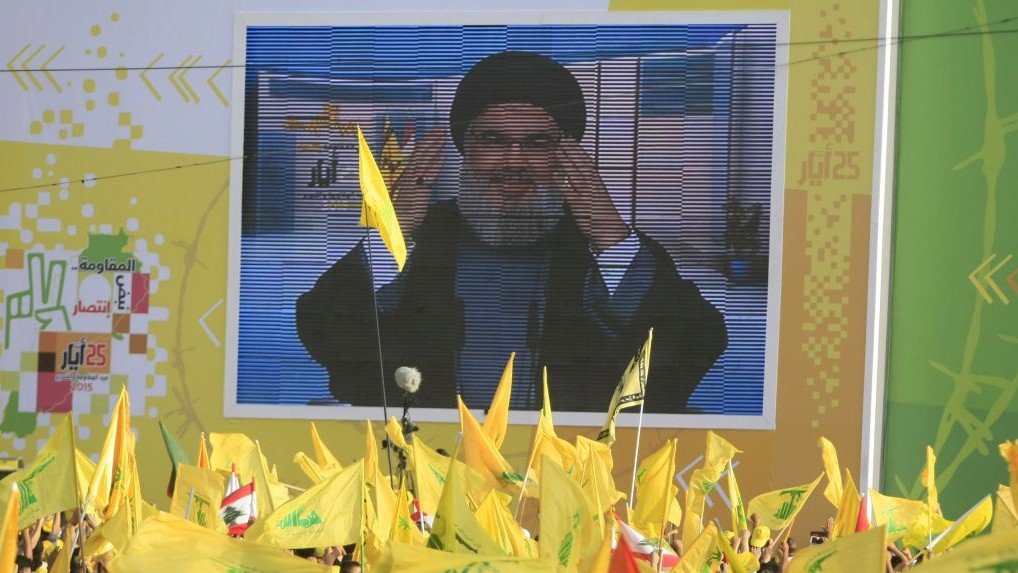Home » Hezbollah sanctions risk destabilising Lebanon
Hezbollah sanctions risk destabilising Lebanon

On June 12, 2016, a bomb exploded at BLOM Bank headquarters in central Beirut. While Lebanese authorities have not yet laid charges, Hezbollah is widely believed to be responsible.
Despite only causing material damage and minor injuries, the recent attack signals an escalation in Hezbollah’s conflict with the fragile Lebanese state and could have important implications for regional political and economic interests.
Although the US designates Hezbollah as a “terrorist organisation”, the group rejects this title and is recognised as a legitimate political party inside Lebanon. The Islamist movement boasts significant social and political influence and enjoys popular support among the country’s large Shia population, occupying approximately ten percent of parliamentary seats and cabinet positions.
The US has long targeted Hezbollah’s financial operations. Since 2001, Washington has sanctioned over 100 entities for providing financial support to the group. In December 2015, the US Congress approved the Hizbollah International Financing Prevention Act (HIFPA). The Act aims to limit Hezbollah’s access to international financial institutions in an effort to “curtail funding of its domestic and international activities”.
BANKING IN BEIRUT

The bombing has rattled Lebanon’s banking sector. Under Basic Circular No. 126, Lebanese banks are obliged to comply with the domestic laws of the countries that their overseas branches operate in. This means HIFPA has pinned the sector between two sobering choices: terminate all dealings with Hezbollah members or sever relations with foreign banks linked to the US.
Neither option was particularly palatable. Faced with little choice, Lebanon’s Central Bank ultimately decided to endorse HIFPA, fearing that failure to implement stricter controls could lead to even heavier sanctions and accountability before the US Congress.
Compounding these fears is the reliance of the Lebanese economy on lucrative international financial relationships with over 160 banks worldwide. This network helps to facilitate foreign remittances from Lebanon’s global diaspora, which contribute some $7.5 billion to the country’s economy each year – accounting for 16 percent of Lebanon’s GDP.
Significantly, BLOM Bank also acquiesced. Hezbollah’s opponents claim the group orchestrated the June 12 blast as a violent message to Lebanon’s banking and political centres of power – not to follow instruction from the US.
LEBANON’S POLITICAL DIVISIONS

Lebanon has been stuck in a political deadlock since May 2014, when former President Michel Sleiman’s mandate expired. For over two years the parliament’s two dominant blocs – the March 14 and March 8 alliances – have failed to agree on a new leader, despite more than 40 consecutive attempts.
Divisions over the reaction of Lebanese banks to HIFPA sanctions mirror sectarian and regional alliances and risk entrenching Lebanon’s political stalemate even further. Disagreement has largely reflected the US and Saudi-backed ‘March 14 Alliance’ and the opposing pro-Syrian and Iran supported ‘March 8 Alliance’ coalition blocs, respectively.
Supporters of the Central Bank decision to implement HIFPA, published as Basic Circular No. 137, argue that it will help to reduce money laundering, strengthen Lebanon’s financial sector and better regulate its banking industry. Opponents argue the US-legislation undermines the rights of Lebanese citizens, particularly the Shia, who are more likely to support Hezbollah but may not necessarily be involved in criminal activity. They advocate that Lebanon, as an independent state, should ensure it is the country’s government that ultimately holds responsibility for the design and implementation of financial laws that govern the way their citizens access money.
HIFPA will undoubtedly restrict Hezbollah’s ability to transfer funds, both domestically and abroad. Washington opposes Hezbollah’s pro-Assad stance and military involvement in Syria, so curtailing the tide of financial and military resources to support Assad is certainly a key priority for the US.
For their part, Hezbollah claims to have evidence that some Lebanese banks have exceeded their HIFPA mandate and are deliberately closing accounts of Hezbollah members whose names are not on the list provided by the US Office of Foreign Assets Control. Hezbollah’s political bloc denounced the Central Bank decision. It declared that the law amounts to a “local war of exclusion” and risks entrenching the country’s monetary crisis by further encouraging a bank boycott.
A Greek-style run on banks is the last thing the Lebanese economy needs right now, and even a moderate fall in deposits could rapidly increase the country’s sovereign risk. In September 2015, Standard & Poor’s downgraded Lebanon’s long-term rating outlook from ‘stable’ to ‘negative’, citing “political uncertainties and regional instability”. As a response to HIFPA, the Lebanese Treasury has reportedly attempted to skirt sanctions by paying Hezbollah Ministers’ salaries in cash; a dangerous harbinger for a wider rejection of the country’s financial system, should the practice spread.
LOOKING TO THE FUTURE

Regional confidence in Lebanon’s economy is declining due to slower economic growth and a ballooning budget deficit. The banking sector remains one of the last bastions of confidence in a country beset by unresolved issues. Additionally, the country’s political impasse is suffering from continued exposure to regional geopolitical influences, particularly the intensification of the conflict in neighbouring Syria and the resultant crippling influx of refugees.
Congress’ decision to enact HIFPA may have been timed to ease concerns in the US and Israel about Washington’s recent rapprochement with Iran, Hezbollah’s key supporter. It also coincides with growing frustration among the West’s Gulf allies over Bashar Al Assad’s resurgence in Syria, where he has been bolstered by Russian-Iranian advances that are highly favourable to Hezbollah’s regional military interests.
Ultimately, if Lebanon is to have any hope of resolving its protracted and debilitating political crisis it will need to resist competing influences from multiple external interests. Lebanon’s financial stability will need to be safeguarded and preserved as best as is practically possible, to ensure that new domestic distractions are not created unnecessarily.
